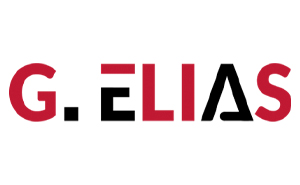1. What are the key regulatory frameworks that govern the banking and finance sector in France?
The key regulatory frameworks that govern the banking and finance sector in France are:
- European Union (EU) norms (directives transposed into French law or regulations which are directly applicable);
- French legal and regulatory framework, most of which is codified into the French Monetary and Financial Code (MFC);
- General Regulations of the Autorité des marchés financiers (AMF) (GRAMF);
- Positions and guidelines published by the competent regulators (for instance, at the EU level: the European Banking Authority (EBA) and the European Securities and Markets Authority (ESMA); at the French level: the Autorité de Contrôle Prudentiel et de Résolution (ACPR) and the AMF); and
- Guidelines or rules of good conduct published by professional associations.
2. How does the French legal system facilitate foreign investment and transactions within the banking and finance industry?
One of the key principles of the EU is the free movement of capital, which namely aims at eliminating obstacles to cross-border investments and payments within the EU, including France. In addition, freedom to provide services on a cross-border basis within the EU and freedom of establishment are also considered by the EU as crucial for the completion of the EU internal market.
In the EU banking and finance industry, such freedoms are regulated by EU directives that enable regulated services providers located in an EU member state (credit institutions, investment service providers, investment funds managers, payment service providers, etc) to provide services in other EU member states (such as France) through the regime of freedom of establishment (by establishing a branch in the relevant EU member state) or the regime of freedom to provide services, under some conditions.
If located in a third country, regulated services providers cannot carry out their activities in France, unless they are duly authorised by the competent French regulator (ACPR and/or AMF).
Credit institutions and investment firms incorporated under foreign law may also open a representative office and have a physical presence in France. This status is limited to information, liaison and representation assignments and representative offices in France must not carry out regulated operations.
3. Could you explain the recent changes or updates in French financial regulations that impact the operations of banks and financial institutions?
Among other important changes in French regulations, sustainable finance regulation has become a key issue impacting the operations of banking and financial institutions and is being implemented progressively since 2021, in particular with the entry into force of Regulation (EU) 2019/2088 (SFDR).
The SFDR defines two new categories of products with extra financial characteristics: (i) products that promote environmental and/or social characteristics; and (ii) products that have sustainable investment as their objective and includes new obligations regarding the information to be provided by portfolio management companies and the incorporation of their extra-financial approaches in their communication.
The SFDR has also an impact on investment advisers, which must now take into account investors’ preferences in terms of sustainability of their investments.
4. What role does the Autorité des Marchés financiers (AMF) play in regulating financial markets in France?
The AMF regulates participants and products in France’s financial markets. It regulates, authorises, monitors and, where necessary, conducts investigations and issues sanctions through the Enforcement Committee to individuals or legal person whose practices violate laws and regulations and fall within the AMF’s jurisdiction. In addition, it ensures that investors receive material information, and provides a mediation service to assist them in disputes.
The AMF’s remit is to ensure that (i) savings are protected when invested in financial instruments that give rise to a public offer or admission to trading in financial instruments and in all other investments offered to the public, (ii) investors are properly informed, and (iii) the smooth operation of financial markets.
5. How do French laws address issues relate to consumer protection in financial services and products?
The French legal framework includes specific and additional requirements that apply to banking or financial service professionals in business relationship with consumers. For instance, financial and banking solicitation of consumers (démarchage bancaire et financier) is subject to strict requirements. Such requirements include notably: (i) the obligation for the service or product providers to gather information in relation to the financial situation, experience and investment goals of consumers; (ii) the obligation to communicate clear and understandable information that is relevant for decision making; (iii) the right of withdrawal; (iv) data protection; and (v) mediation services.
French laws also empower regulatory bodies, like the ACPR and the AMF, to enforce consumer safeguards.
In addition to this specific protection, consumers also benefit from the general consumer protection regime in France. This regime applies, in particular, to consumer credit, mortgage credit, and all financial services provided remotely to consumers.
6. Can you provide insights into the legal challenges and opportunities brought about by innovations like fintech and digital banking in France?
The main legal challenge for fintech companies is that regulated activities must be conducted by regulated entities. The process of obtaining authorisation from the ACPR or the AMF being generally time-consuming and costly, it prevents many fintech startups from developing certain business models as soon as part of their business model is subject to the regulator’s authorisation.
Further, since France does not have per se a specific approach regarding fintech’s regulation and that the regulatory framework to which a fintech company may be subject depends on the specific activities it carries out, fintech companies developing new types of products or services could face situations of ambiguity and legal uncertainty.
Still, both French legislators and regulators have adopted a welcoming attitude, and we are witnessing the emergence of several well-established players, especially in areas such as mobile payments, personal fundraising applications, neobanks, digital meal vouchers, crowdfunding platforms, robo-advisers, or insurtech. The future also holds a multitude of opportunities through innovative use cases such as decentralised finance (DeFi), non-fungible tokens (NFTs), tokenisation of assets or enhancements to existing functions like cross-border payments and securities settlement.
7. What are the legal requirements and procedures for obtaining banking licences or authorisations to operate in the French market?
Under French law, banking services include: (i) receiving funds from the public; (ii) granting loans; and (iii) providing banking payment services.
There are several types of licences and authorisations, depending on the type of business carried out by the relevant institution, each regime being subject to a different procedure and legal requirements. The main licences and authorisations are granted for credit institutions, investment firms, finance companies and payment/electronic money institutions.
Applications for banking licences or authorisations must be submitted to the ECB or the ACPR. When issuing licences or authorisation, regulators review whether certain conditions are met including notably minimum capital requirements, governance requirements, adequacy of the form of the legal entity and of the programme of operations, technical and financial means, robustness of shareholders and other equity providers or guarantors.
8. How does French law address anti-money laundering (AML) and combating the financing of terrorism (CFT) in the banking and finance sector?
AML/CFT rules applicable in France derive from EU legislation and in particular Directive (EU) 2015/849 (as amended) and implemented into French law by various ordinances, decrees and orders.
Such rules apply to any professional in the French banking and finance sector.
The main provisions to address AML/CFT in the banking and financial sector include the implementation by obliged entities of due diligence obligations towards their clients, internal control systems, ongoing monitoring, implementation of internal procedures to comply with AML/CFT standards and reporting obligation to the French financial intelligence unit (TRACFIN).
9. In what ways has Brexit influenced the legal landscape for international banks and financial institutions operating in France?
Banks and financial institutions which were located in the United Kingdom were operating in France under the EU passport regime which allows banking and financial institutions based in one EU member state to market their products and services throughout the European Union.
After Brexit, British banks and financial institutions cannot rely on the EU passport. They are no longer able to carry out banking and financial activities in France under the passport regime unless they decided to transfer their activities to the territory of an EU member state before Brexit.
However, the AMF and the ACPR managed to facilitate the authorisation process for British institutions that operated in France before Brexit and set up in 2016 a ‘welcome programme’ that enabled British institutions to benefit from a fast-track pre-authorisation process with the AMF and the ACPR.
10. Could you elaborate on the dispute resolution mechanisms available to parties involved in banking and finance matters in France, including arbitration and litigation?
Both the AMF and the ACPR propose mediation services through the AMF ombudsman, credit mediation service of the ACPR and mediation service of the Banque de France. Such services are free of charge.
Moreover, some financial institutions may rely on professional associations of which they are members to set up a mediation service for their clients.
Failing these procedures, the usual remedies are possible with the competent courts (commercial court or tribunal judiciaire, depending on the case).

 I actually started practising law in California, way back in the dark ages. I moved over here for two years, and I’ve been here ever since. I never really intended to be a lawyer in London at all. My lifetime ambition was to be a criminal lawyer in Baltimore. My early career could be characterised as wanting to work at a big law firm in a big city before I would go back to a smaller city and a very different law practice. As you can see, all that planning never really turned out. I haven’t touched a criminal case in a very long time.
I actually started practising law in California, way back in the dark ages. I moved over here for two years, and I’ve been here ever since. I never really intended to be a lawyer in London at all. My lifetime ambition was to be a criminal lawyer in Baltimore. My early career could be characterised as wanting to work at a big law firm in a big city before I would go back to a smaller city and a very different law practice. As you can see, all that planning never really turned out. I haven’t touched a criminal case in a very long time.
 Why did you want to become a lawyer and what drew you to the financial services regulatory side?
Why did you want to become a lawyer and what drew you to the financial services regulatory side?



